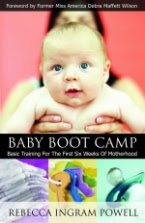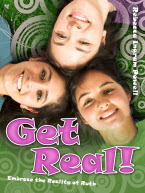At the end of a good query letter, the writer normally lists her qualifications for writing the piece. If you've written a book on a topic, you are automatically recognized as an expert. That alone gives you something to offer when you query a related piece. But for a novice writer, this can turn into a vicious cycle. When you don't have any experience, it can mean you get turned down. But how, then, do you acquire the experience you need? What qualifies you to write a magazine article? Certainly, a good grasp of the English language, tightly-honed personal editing skills, and the ability to communicate well through the written word qualify you to be a writer. But these qualities alone do not give you the knowledge to tackle every subject. Personal experience is always a plus, but what will really give your article legs to stand on?
Experts. An expert interview is sometimes a key difference between a devotional-style essay and an article. There are people out there who are experts in their various fields. They love to be interviewed, and they add substance to your article.
For example, if you have helped three children move into their college dorms over the past five years, you are certainly qualified to write something along the lines of: "She's Leaving Home: A Dormitory Supply Checklist for your College Freshman." But would that experience alone qualify you to write something like this: "She's Leaving Home: Preparing Your Family When Your Oldest Child goes to College"? No, probably not for an established magazine that pays its writers. Not unless you happen to be not only a writer, but also a family counselor or education specialist who is qualified by trade to speak on that topic. Find experts by looking for authors on amazon.com and contacting them through their websites. Look to your local area for people who are considered experts in your town. And start watching the local news! Not only will you get some article ideas, but you'll get to know who your local experts are.
Anecdotes. You may certainly use personal anecdotes to help fill out your article, but use the stories of friends and acquaintances, as well. If your best friend was crying on your shoulder the day her son went to college three states away, use her in your article: "Massachusetts mom, Debra Smith, remembers the day her oldest left home. . ." Then get a great quote from her to use.
A query letter will look as though you have a more appealing article behind it when you simply state, for example, that you have interviews lined up with so-and-so and that you will include the personal experiences of three families.
Does this sound like a lot of work? From my own experience, it has been! Getting interviews, researching, talking to people--that takes quite a bit of time and energy. How hard are you willing to work? The truth is, if you want to write for pay, then it is going to look like a job--because it is.
It is, btw, a job I love.
HAPPY FOURTH OF JULY! ENJOY THE WEEKEND! I WILL CONCLUDE THIS SERIES ON QUERY LETTERS ON MONDAY, JULY 7.
Experts. An expert interview is sometimes a key difference between a devotional-style essay and an article. There are people out there who are experts in their various fields. They love to be interviewed, and they add substance to your article.
For example, if you have helped three children move into their college dorms over the past five years, you are certainly qualified to write something along the lines of: "She's Leaving Home: A Dormitory Supply Checklist for your College Freshman." But would that experience alone qualify you to write something like this: "She's Leaving Home: Preparing Your Family When Your Oldest Child goes to College"? No, probably not for an established magazine that pays its writers. Not unless you happen to be not only a writer, but also a family counselor or education specialist who is qualified by trade to speak on that topic. Find experts by looking for authors on amazon.com and contacting them through their websites. Look to your local area for people who are considered experts in your town. And start watching the local news! Not only will you get some article ideas, but you'll get to know who your local experts are.
Anecdotes. You may certainly use personal anecdotes to help fill out your article, but use the stories of friends and acquaintances, as well. If your best friend was crying on your shoulder the day her son went to college three states away, use her in your article: "Massachusetts mom, Debra Smith, remembers the day her oldest left home. . ." Then get a great quote from her to use.
A query letter will look as though you have a more appealing article behind it when you simply state, for example, that you have interviews lined up with so-and-so and that you will include the personal experiences of three families.
Does this sound like a lot of work? From my own experience, it has been! Getting interviews, researching, talking to people--that takes quite a bit of time and energy. How hard are you willing to work? The truth is, if you want to write for pay, then it is going to look like a job--because it is.
It is, btw, a job I love.
HAPPY FOURTH OF JULY! ENJOY THE WEEKEND! I WILL CONCLUDE THIS SERIES ON QUERY LETTERS ON MONDAY, JULY 7.




















3 comments:
Thank you for this important advice! I look forward to Monday's post.
Happy 4th of July!
What a great website, Rebecca! Thanks so much for taking the time to share your pearls of wisdom - what a blessing. I'm also a homeschooling mom who loves the movie "Christmas in Connecticut". Too funny. :-) Hope you had a great 4th of July. Blessings & JOY!
I am learning so much. My brain is on information overload, I think!
I have to laugh, because I blindly sent in my first attempt at writing after being encouraged by a Titus woman at church. My query letter said something like "attached is my article for your review." No hook, no legs, my article wasn't even double-spaced! And it is being published in November by Proverbs 31 Magazine.
Now I know better, all the things I should do. BUT - - Sometimes ignorance is bliss!
Post a Comment